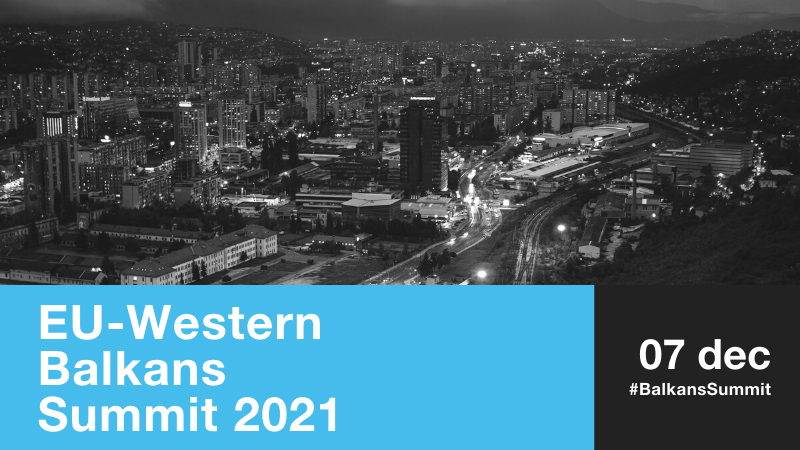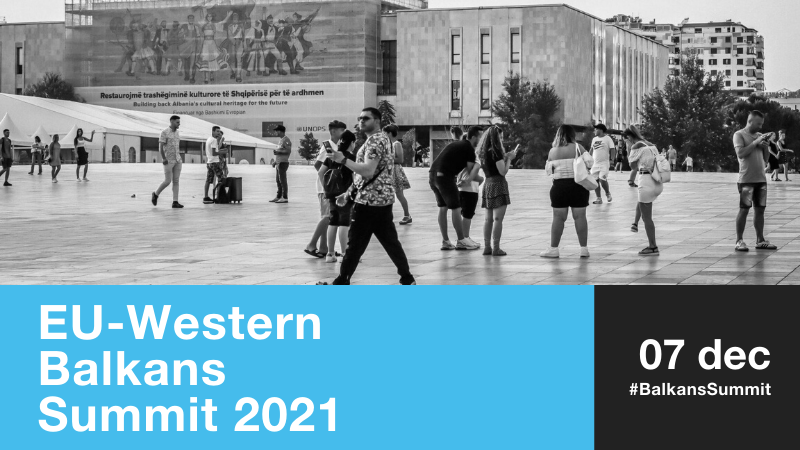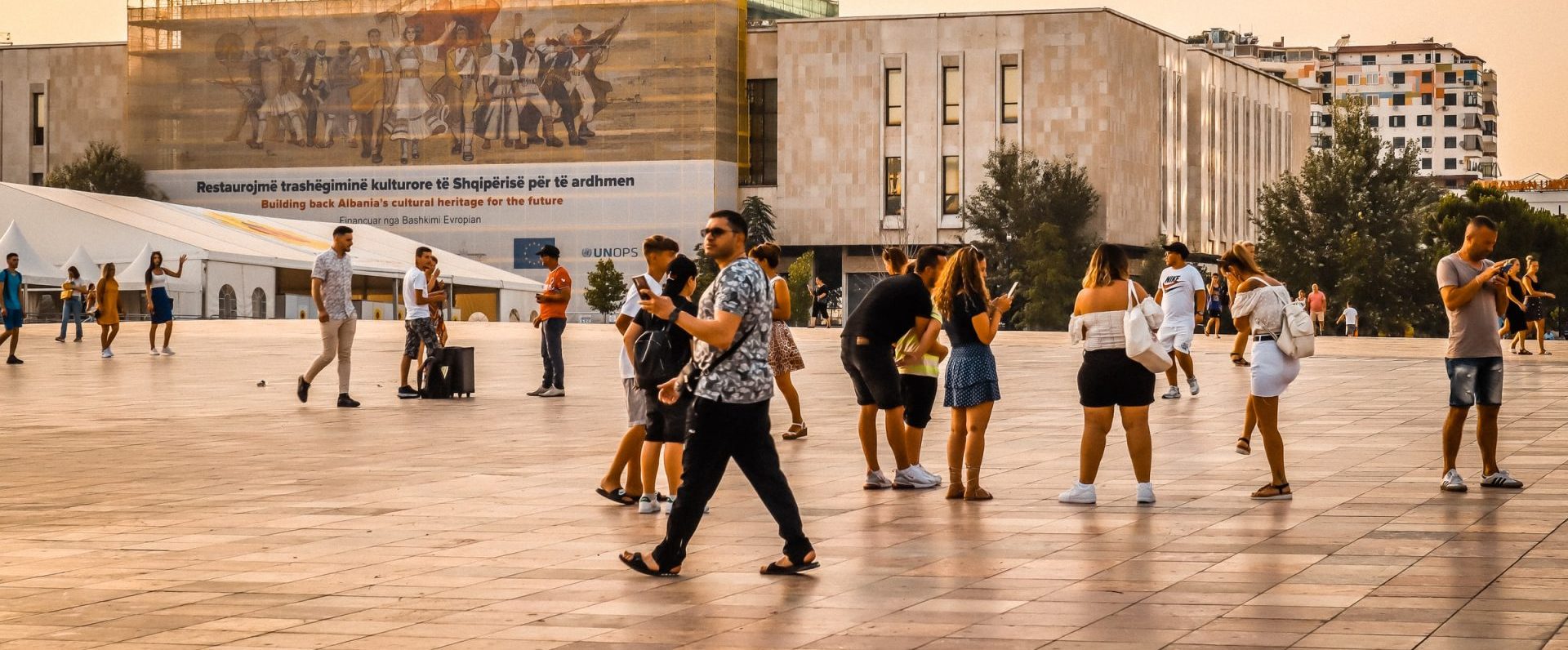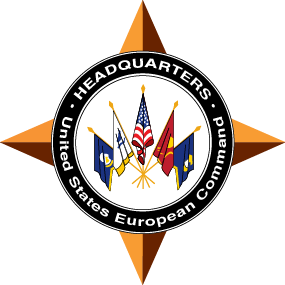YOUNG BALKAN VOICES: LISTENING TO THE NEXT GENERATION
TUESDAY 7 DECEMBER 2021
Friends of Europe’s annual EU-Western Balkans Summit on Tuesday called for a revitalised approach to relations, looking beyond the region’s stalled EU membership process to focus on positive developments including opportunities for increased youth, civil society and private sector engagement; funding for the green digital transition; and the region’s growing ability to attract trade and investment.
“Europe won’t be complete without the Western Balkan counties,” insisted Dubravka Šuica, European Commission Vice-President and Commissioner for Democracy and Demography, said as the summit got underway.
Young Balkan voices: listening to the next generation
Speaking at roundtable with young people ahead of the summit, Šuica insisted the region -and in particular its young people – will have a say in the EU’s Future of Europe Conference, launched in 2019 to examine reforms of the Union’s policies and institutions.
“We are preparing this Europe for the next generation, together with you, with young citizens,” Šuica said. “We cannot talk about the future of Europe, without having Western Balkans in mind.”
A survey by UNICEF, released to coincide with the summit, showed strong support for joining the EU among Balkan youth.
Over 57% think their country’s membership would ‘make things better’. However, they have little hope that’s going to happen soon, and the survey shows low levels of trust for local politicians.
“The young generation is the engine of every country, and their trust is crucial for any political representative,” Alesia Alldervishi, an International and European Law Student at the Europa Institut of Germany’s Saarland University, wrote in an article for Friends of Europe.
“Yet, 24.4% think that their country will never get into the EU, and 60.5% strongly disagree that political representatives heard their voice,” she added, referring to the UNICEF report.
“These two statistics show the immediate need for Western Balkan countries and their governments to recognise the youth perspective and reconsider how the youth is involved in decision-making processes.”
Other youth representatives called for greater EU support to bolster democracy and civil society in the region; more structures to give young people a stronger political voice; and an end to restrictive visa policies that limit their mobility in Europe.
Šuica said EU initiatives such as the Economic and Investment Plan, which aims to leverage up to €30bn to support post-pandemic recovery in the region, will help create conditions for young people to meet their aspirations at home and reduce the flow of emigration.
Trade and investment – a question of geopolitics?
Recent growth in foreign investment has been a success story for the Western Balkans. Foreign direct investment (FDI) in 2019 accounted for 6.3% of the region’s gross domestic product (GDP), the highest rate in Europe, pointed out Igor Lukšić, former prime minister, former minister of finance and former foreign minister of Montenegro. Behind those impressive numbers, the economic interests of players such as China, Russia and Turkey have raised concerns in the West.
Speakers from the region offered some reassurance, at least for the moment. Not only is the EU, by far, the biggest economic player in the region, but its role as leading partner is widely supported by the local population. However, that could change if the EU continues to thwart Balkan membership aspirations, speakers warned. “This has a bearing on the EU’s position, narrative, capability and leverage,” cautioned Maja Handjiska-Trendafilova, Head of Programme Department at the Regional Cooperation Council (RCC).
There was a broad welcome for the EU’s Economic and Investment Plan, talk of a gradual integration of the region into the EU’s single market, and initiatives to promote a regional common market. However, speakers insisted such moves cannot be a substitute for EU membership and they appealed for European leaders to unblock the accession process.
“Without an effective accession process towards the EU, there is no stable and quality solution,” said Lukšić. “I’m not advocating for short cuts, I’m asking for the process to move.”
A sustainable recovery – looking towards the future
Priorities in the EU investment plan have been worked out with Balkan leaders to maximise job creation and economic modernisation, while ensuring the region mirrors the EU’s own post-pandemic recovery drive based on green and digital transitions, explained Maciej Popowski, Acting Director-General of the European Commission’s Directorate-General for European Neighbourhood Policy and Enlargement Negotiations.
“It’s not based on magic nor wishful thinking. It’s based on very specific input coming from the countries in the region,” he said. “On the one hand, we would like the region to join the EU climate ambitions and on the other, they should also become thriving modern economies.”
As the region’s main markets in the EU demand greener and cleaner products, it’s essential that Balkan economies make a climate-friendly switch, said Mirjana Spoljaric Egger, Assistant Secretary-General of the United Nations, Assistant Administrator of United Nations Development Programme (UNDP). “One cluster that will define whether this region is going to grow in the future is greening and digital,” she said. “Greening the environmental footprint of these economics will define the future economic capacity of all the countries individually in the Western Balkans.”
The EU investment plan will represent about one-third of the region’s total GDP, Popowski noted, but beyond the massive amount of money, speakers from the region underscored the importance of ensuring that it is well spent, supporting grassroots initiatives, promoting inclusive growth for women and young people, and spurring entrepreneurship.
Talking from the inside out – new routes to bridging the gap
The final session underscored the importance of social advances and resilient economies as a driving force for improving democracy and the quality of life in the region, not just tools to move closer to EU membership.
Erion Veliaj, Mayor of Tirana, expressed “enormous” disappointment at the lack of political progress towards enlargement, but rather than sit around and wait for change, he is moving to modernise Albania’s capital with support from European financial institutions and in partnership with other cities in the EU and beyond.
“The European Union is playing on two gears, there is this very slow political gear … and yet we have this agile Europe, which is the European Investment Bank [EIB], the EBRD [European Bank for Reconstruction and Development], the Council of Europe [Development] Bank,” he said. “Most of my trips now are in Luxembourg and London, rather than in Brussels, because financial Europe is moving much faster.”
Mila Carovska, Minister of Education and Science of North Macedonia and 2020-2021 European Young Leader (EYL40), explained how she’s working to advance education as key for economic progress, democracy, the rule of law and – as the COVID-19 crisis has shown – public health. Likewise, Biljana Spasovska, Executive Director at the Balkans Civil Society Development Network, stressed the importance of civil society in protecting democracy and human rights. Stressing the need for renewed EU support, she also recalled that civil society is “the biggest driver” behind support for the Balkan’s integration into the EU.
EU enlargement is at the core of the European integration project and the Union’s leaders need to find the courage to push ahead with it for the sake of the whole continent, insisted Gordana Čomić, Serbian Minister for Human and Minority Rights and Social Dialogue. “That is something the European Union should do,” she said. “The message to the people living in this region [should be]: ‘you are our success as a foreign policy of the European Union, and you are part of this continent and we take you on board because it is the right thing to do’.”






























